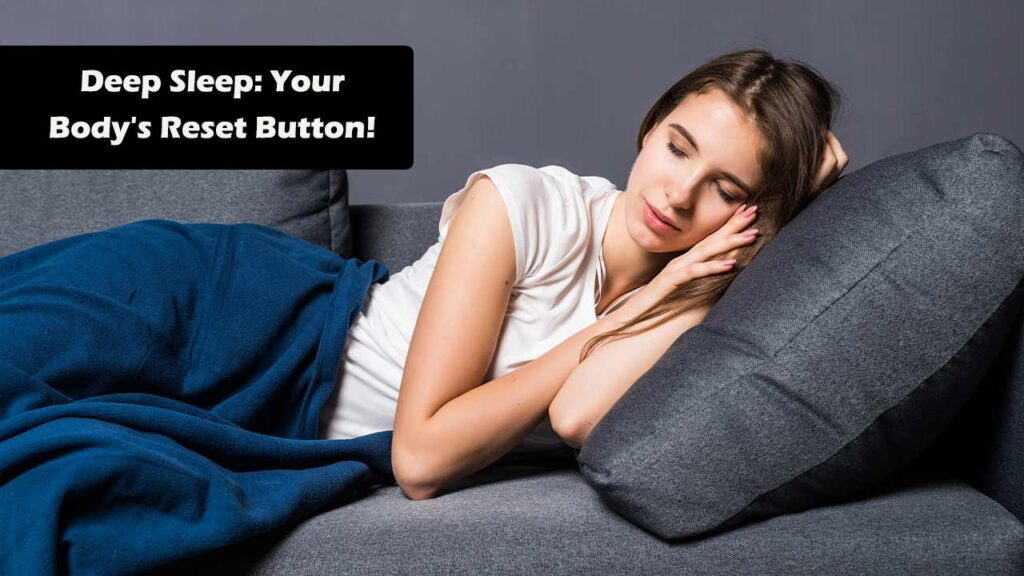When it comes to weight loss and fitness, we often focus on the usual suspects diet, exercise, and maybe hydration. But there’s one sneaky factor that quietly sabotages progress for many of us: sleep deprivation. If you’ve been hitting the gym, sticking to your meal plan, and still not seeing results, your sleep habits might hold the key.
This blog dives into the surprising ways poor sleep can impact your weight loss and fitness goals, why it matters more than you might think, and actionable tips for getting back on track.
Why Sleep is a Big Deal for Weight Loss and Fitness
We all know that getting enough rest helps us feel energized and focused, but sleep does so much more than that. It’s a fundamental process that affects nearly every system in the body, especially the ones tied to your fitness goals. Here’s an overview:
- Sleep helps regulate hormones like cortisol, ghrelin, and leptin, which control stress and hunger levels.
- Quality rest helps with muscle recovery, so you can train harder and improve performance.
- Sleeping well improves decision-making, making it easier to resist junk food and stick to your goals.
Without enough sleep, your body can rebel holding onto fat, feeling sluggish, and craving comfort foods. But how exactly does this happen? Let’s break it down.
Sleep Deprivation Messes With Your Hormones
One night of tossing and turning won’t derail your fitness plans immediately, but sleep deprivation can disrupt hormones in alarming ways, particularly:
1. Increased Cortisol Levels
Cortisol, your body’s stress hormone, tends to spike when you don’t get enough rest. Chronic sleep deprivation leads to consistently elevated cortisol levels. The problem? High cortisol levels signal your body to store fat, especially around the belly.
2. Hunger Hormones (Ghrelin and Leptin) Go Haywire
Ghrelin and leptin are critical in controlling your appetite.
- Ghrelin signals hunger. Sleep deprivation increases ghrelin levels, making you feel constantly hungry.
- Leptin signals fullness. When you lack sleep, leptin levels drop, so you don’t feel satisfied even after eating.
This combination is a recipe for overeating, particularly late-night snacks and high-carb cravings.
3. Lower Testosterone and Growth Hormone Production
If you’re trying to build or maintain muscle, poor sleep is your enemy. Sleep is when your body produces growth hormone and testosterone—both essential for muscle repair and fat burning. Less sleep = slower recovery and less lean muscle.
The Impact on Exercise and Training
Sleep doesn’t just affect how your body processes food, it can also derail your workouts. Here’s how:
1. Poor Recovery
When you sleep, your muscles repair micro-tears caused by exercise. If you don’t get enough quality rest, your muscles recover slower, leading to soreness, fatigue, and maybe even injuries.
2. Reduced Energy Levels
Ever tried working out on just 4 or 5 hours of sleep? It’s tough. Sleep deprivation reduces energy levels, making it harder to perform at your best during workouts. You’ll burn fewer calories and might be tempted to skip that extra set or cardio session altogether.
3. Mental Fatigue
Sleep deprivation doesn’t just affect your body, it affects your mind, too. You may feel more discouraged, less motivated, or even anxious. Sticking to your goals can feel ten times harder when your brain is running on empty.
How to Prioritize Sleep for Better Weight Loss and Fitness Results
Now that you understand how crucial sleep is, the big question is what can you do about it? Here are six actionable tips to improve your sleep quality and stay on track with your fitness goals:
1. Establish a Consistent Sleep Routine
Your body thrives on routine. Go to bed and wake up at the same time every day (even on weekends!) to regulate your internal clock. Aim for at least 7–9 hours of sleep.
2. Create a Sleep-Inducing Environment
Make your bedroom a relaxing haven.
- Keep the room cool, dark, and quiet.
- Invest in blackout curtains and a quality mattress.
- Turn off screens an hour before bed, blue light tricks your brain into thinking it’s daytime.
3. Manage Stress Levels
High cortisol levels from stress can keep you awake. Try relaxation techniques like deep breathing, meditation, or yoga to lower stress before bed.
4. Limit Caffeine and Alcohol
Avoid caffeine after 2 PM, it sticks around in your system and can disrupt sleep. Similarly, while alcohol might make you feel drowsy, it messes with sleep quality.
5. Track Your Sleep
Use a sleep tracker or app to monitor how much rest you’re getting. Knowing your sleep patterns helps identify areas for improvement.
6. Avoid Late-Night Meals
Eating heavy meals or snacks too close to bedtime keeps your digestive system working overtime, which can make falling asleep harder. Try to have your last meal 2–3 hours before sleeping.
Final Thoughts on Sleep and Fitness
If you’re serious about achieving your weight loss or fitness goals, don’t underestimate the power of sleep. Think of it as the missing puzzle piece that completes your health routine. While it may be tempting to sacrifice rest for early gym sessions or late work nights, prioritize your shut-eye, and you’ll see improvements across the board.
Remember, progress doesn’t just happen in the kitchen or the gym, it also happens when your head hits the pillow. Start tonight.
Need more helpful tips to crush your fitness goals? You deserve expert guidance, share your thoughts or questions in the comments below!
FAQs About Sleep, Weight Loss, and Fitness
Can bad sleep habits cancel out my fitness efforts?
While sleep deprivation alone won’t directly make you gain weight, it can slow down progress and make sticking to your fitness plan harder by affecting energy levels, cravings, and muscle recovery.
How much sleep do I really need for weight loss?
Most people need 7–9 hours of quality sleep per night. Athletes or those training intensely may need more for optimal recovery.
Should I focus on diet and exercise first, or sleep?
All three are equally important. Diet and exercise build the foundation, but sleep is the glue that holds everything together. Without good sleep, your body can’t recover or perform at its best.
Can napping help if I don’t sleep well at night?
Short naps (20–30 minutes) can help you catch up on rest and boost energy. However, they shouldn’t replace proper nighttime sleep.


